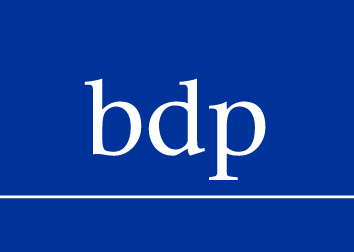Newsletter December 2022:
By: Paloma Alcaide
How does trade credit insurance work?
You grant credit payment terms to your customers every day. And because it’s a standard way of doing business, you may need to consider the risk you are taking.
You have probably asked yourself: What happens if a customer does not pay, if a company closes down, or if a government suddenly prohibits the transfer of payments or declares a devaluation?
You may never have experienced any of these situations, but the fact is that unpaid invoices cause 25% of bankruptcies.
It would be appropriate to ask the following question: What percentage of my total assets do unpaid invoices represent and deserve to be protected?
DO YOU KNOW ABOUT THE IMPACT OF AN UNPAID INVOICE?
An unpaid invoice has a significant impact on a company’s cash flow. To give a simple example: If you have a profit margin of 10%, you would have to sell ten times an invoice of that amount to compensate for the unpaid invoice. That means if the invoice is 100,-€, with a profit of 10,-€. If that invoice is unpaid, you would have to sell ten times invoices for a similar amount so that, with the profit of those ten invoices, you could compensate the loss due to the non-payment of the initial one (10 new invoices, with a profit of 10,-€, would add up to 100,-€ to compensate the unpaid invoice).
Therefore, an unpaid invoice, depending on their profit, causes a financial loss for which, in order to be compensated, the turnover has to be increased in the same proportion as your profit margin.
Perhaps the time has come to think about a solution to prevent the risk of non-payment.
There are insurance companies specialized in default risk prevention, with innovative solutions for commercial risk, that will know how to protect you from potential defaults that may already be putting your business liquidity at risk.
Its coverages are wide-ranging, with a short indemnity term. They help you to make credit decisions, making liquidity possible for your company, financing, or, to be more precise, indemnifying your invoices, while they claim the non-payments from your customers.
Thanks to their advanced online platforms, you will have unified and available information whenever you need it. You will always be able to manage your policies and all the information about your insured clients. You will know in real-time the classification and updates in your risk limits and will be alerted in case of changes in your solvency.
You will always have your specialized advisor nearby and know that your portfolio is controlled.
WHAT IS RISK INSURANCE, ALSO KNOWN AS CREDIT INSURANCE, AND HOW DOES IT WORK?
You can insure and protect your company against payment defaults by guaranteeing collection and providing assistance to prevent significant financial damages.
Credit insurance guarantees the policyholder the payment of debts owed to him. Therefore the collection of the debts is guaranteed in his favor, in the event of default of payment due to the insolvency of his debtors.
In particular, it covers the risk of non-payment in commercial credit operations between companies.
This tool is very effective for companies, as it provides them with a competitive advantage, as it is a financial instrument of protection and peace of mind that is essential for the stability and profitability of a business.
It is also known as a sales tool, as its objective is to increase turnover in a safe and certain way, helping to decide whether to sell on credit to a company or not, as the insurance company will advise you, indicating whether you can sell freely (and in the event of non-payment, the insurance company will compensate you) or if that client does not have an adequate financial structure to face credit or is already defaulting on others, and it is better not to sell to him.
It is a financial instrument that protects against the risk of non-payment and insolvency in a commercial operation, as it is the mechanism that offers the most guarantees after advance payment or bank guarantees, since in the event of unforeseen or unforeseeable circumstances, it would cover the insolvency and default of certain customers, acting as a commercial tool, and as mentioned above, helping to consolidate and increase the company’s turnover, thus boosting business growth.
There are different types of credit insurance, which will adapt to your needs, with policies with personalized coverage and adapted to the peculiarities of each of your companies, as the coverage needs are different for each company. For example, a Small and Medium-sized company (SME) does not look for the same solution as a large company; therefore, there are different types of default insurance. Each company is different; therefore, the insurance product to be contracted should also be different, depending on the risk of non-payment by its customers.
- Domestic or national credit insurance, which offers coverage at the domestic level, protecting credit sales that take place in the domestic market.
- Export or international credit insurance, which offers international coverage for commercial transactions.
In order to know which policy best adapts to the needs of your company, it is essential to carry out a prior exhaustive study of both the market and the company to determine the existing risks, and with all the information provided by this prior study, your company can proceed to contract the cover that best adapts to each of the risks that have been detected.
The variety of risk insurance companies on the market is not very wide, but the companies that exist and that do this type of insurance are specialized companies and will be happy to help you carry out this study, and then you can decide which of them to stay with and have your personalized insurance, considering important sales volumes to new clients with less reluctance or enter new markets assuming a minimum risk.
The traditional policy is the one that is aimed at most companies. It covers all of the company’s domestic and international credit sales.
It can be extended with political risk coverage to insure countries with internal conflicts.
The insurance company is in charge of classifying the insured’s client portfolio and managing the recovery of claims. Hence, the company’s responsibility is from the beginning, and it also requires ensuring all credit sales, which you will have to present to them on a monthly basis.
In terms of guarantees, depending on the insurance company you choose, it can offer you a cover of between 85% and 95% of the amount of the unpaid invoice by your customer.
Their payment method is usually by indemnifying between 2 and 6 months from the time you present the claim.
Some companies stand out in the adaptation of the policy to the special characteristics of each client by means of supplements to the contract.
If your company has a turnover of more than 600.000€, maybe it is time to consider insuring yourself against non-payments, which unfortunately are increasing daily. It doesn’t matter in which sector you operate. You are sure to find the right insurance for your company.
It is important to stay within the maximum level of cover assigned to each customer, i.e., your limit (or sell on credit to an uninsured customer). It may happen that, because of a good relationship with a client, you sell on credit to him above the maximum. If he does not pay you (for example, because he, in turn, suffers another default), you may be left without cover for the amount exceeding the limit.
It is advisable to ask for several offers from the various insurance companies on the market, which you can find on the Internet, or to consult a specialized insurance broker because the cost of insurance depends on several factors (sector of activity, turnover, type of customers, average payment terms, etc.).
Make a comparison. Generally, the premium is a percentage (e.g., 0.20%) of the sales forecast for the year. Insurers usually guarantee a minimum premium. The cost may be increased by the costs of customer research and classification.
If you have any further questions about how trade credit insurance works, please don’t hesitate to get in touch with us at sales@bdp-mc.com.
Our bdp Mechanical Components team is happy to provide you with advice and assistance.


